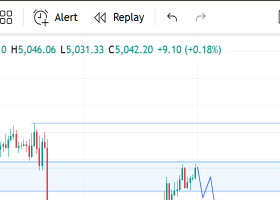Economic activity in Japan plunged – GDP dropped by 1.7%. That’s the worst fall seen since the days of the financial crisis in 2009.
So this must be worrying news, right? Not really.
GDP is of no use
Other than the inflation figures, GDP is probably the biggest headline-grabber of all the bits of economic data that is regularly released. In fact, from an investor’s point of view, GDP may be one of the most useless bits of data around.
To begin with, by market standards, GDP data is ancient history. The second quarter ran from April to June. It’s August now. If you didn’t already have a rough idea of what the second quarter was like for the economy, then you haven’t been paying enough attention.
So this data is only telling you what you already knew – this particular quarter was great; that particular quarter was a duffer.
It’s also continuously revised. For example, already in Britain, we’re being told that the catastrophic slump of 2008/09 wasn’t quite as bad as everyone said at the time.
So not only is the figure well out of date by the time we get it, it’s also wrong. Sometimes dramatically so.
A figure that’s both late and often hugely inaccurate – you can see why I’m not keen to incorporate it into my investment decisions.
Current quarter is going to be a way better
A lot of the drop hinges on Japan’s consumption tax – VAT. Japan elevated its sales tax in April. So smart consumers bought loads of stuff – including property – in March, while the tax was still 5%, rather than 8%.
So not only was GDP artificially low in the second quarter, it was unusually high in the first (because of all that tax-dodging spending). By comparison, the second quarter GDP looked even worse.
Moreover, investment spending by businesses was down. However, that figure had enjoyed one of its biggest jumps in the past two decades in the first quarter, so it’s hard to argue that investment is collapsing.
And with shrinking ‘spare capacity’ - meaning the amount of unused bits of machinery and human beings lying around doing nothing, ready to be put to work - “firms should continue to invest in machinery and equipment”, says Capital Economics.
That’s good news. If companies are investing, it means they’re building more factories, hiring more workers, and feeling confident about the future.
Better yet, the consumer is still looking perky. Retail sales are rebounding more rapidly than they did the last time Japan raised its sales tax, back in 1997. Meanwhile, as the FT notes, “summer bonus payments – a big part of salaried workers’ pay – are up by the biggest margin since 1990”.
This is of high importance. Consumer price inflation is returning. That’s what happens when the value of your currency dips, and therefore pushes up the price of your imports.
But price inflation in itself isn’t of high importance if it isn’t matched by rising wages. If prices rise but wages don’t keep pace, you’ve effectively just taxed your consumers and not going to spend more. However, with companies keep hiring, and fewer workers to go around, wages are going to have to rise.
That’s great for corporate profits, and it should mean more money going on investing as well.
Finally, there’s the small fact that the Bank of Japan remains one of the central banks that is still deeply stuck in ‘looser’ monetary policy mode. The US and the UK are both under a high pressure to tighten.
Given that looser monetary policy and rising markets tend to go hand in hand (judging by recent history), it suggests that Japanese stocks can rely on ‘official’ support if things start to look really grim on the economic front.



